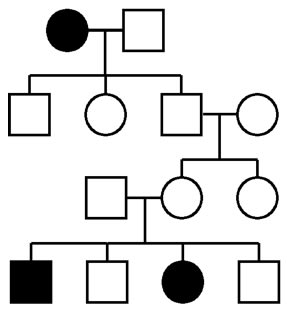Last week we discussed the first chapter in Even Haezer, the section of the Tur and Shulchan Arukh dealing with the laws of marriage. That chapter dealt with the obligation to marry and have children. This week we discuss the second chapter, which discusses the ideal spouse whom we should marry.
Seemingly, the main consideration mentioned in the Tur is family background, or yichus. The chapter opens: “A man should only marry a woman who is appropriate to him, one who has no disqualification, for anyone who marries a woman who is inappropriate to him, when the Holy One blessed be He testifies to the tribes [that they belong entirely to the people of Israel], He won’t testify to him”.
Of course this in no way contradicts the importance of finding a spouse with a good character and with compatible traits. It just means that the search begins with those with a good family background. Afterwards the quality of the match is determined by personal qualities. Indeed the Tashbetz writes that when Chazal state that “From Hashem a woman to a man” (Moed Katan 18b), it refers to this kind of compatibility: “insofar as this woman is suitable for this man in manifestations and humor [today we would say “chemistry”] between them, according to the divine decree”. (Tashbetz II:1.)
But when we look more deeply we find that the idea of good background is itself intimately connected with good character. When the Tur goes on to describe how we gauge a person’s pedigree, he doesn’t discuss how many generations we check their descent. Rather: “And what is the sign of pedigree? Someone who hears an insult and doesn’t respond, as Rav Ada stated, ‘The pedigree of Bavel is silence’.”
Later on, the Tur cites Rambam, who writes that in general all Jewish families can be assumed to have yichus, a kosher background. The exceptions: someone from a family which is very quarrelsome, and “someone who is insolent and cruel and misanthropic, and doesn’t do acts of loving kindness, we suspect that he is a Givonite [symbolizing lowly background], for the signs of the holy nation of Israel is that they are bashful, merciful, and kind” (Isurei Biah 19).
So the insistence on family background comes to focus not on pedigree, but rather on character traits and the educational environment of the prospective spouse. Even the mandate to seek the daughter of a Torah scholar is given a perspective which ties it to the traits of the spouse: “A person should always try to marry the daughter of a Torah scholar and to marry his daughter to a Torah scholar, for if he dies or is exiled, his children will be Torah scholars”. The emphasis is switched from the technical fact of the wife’s background to the practical consideration of the educational environment she will create for the children.
(I have heard that the Chazon Ish ruled that any woman who was educated in a reputable Torah seminary should be considered a “daughter of a Torah scholar” for the purposes of marriage, for this very reason.)
We learn from the Tur that much of the distinction between family background and character is really artificial. The importance of family background in Jewish law and tradition is itself bound up with the idea that our nation as a whole naturally displays and esteems elevated character traits: forbearance, modesty, kindness. This doesn’t mean that a distinguished pedigree is not impressive or importance; it just means that ultimately we are trying to find a partner who will have an enlightened soul and wonderful characteristics, and the family background is one, but only one, correlate for these human qualities.
Rabbi Asher Meir is the author of the book Meaning in Mitzvot, distributed by Feldheim. The book provides insights into the inner meaning of our daily practices, following the order of the 221 chapters of the Kitzur Shulchan Arukh.
The words of this author reflect his/her own opinions and do not necessarily represent the official position of the Orthodox Union.
